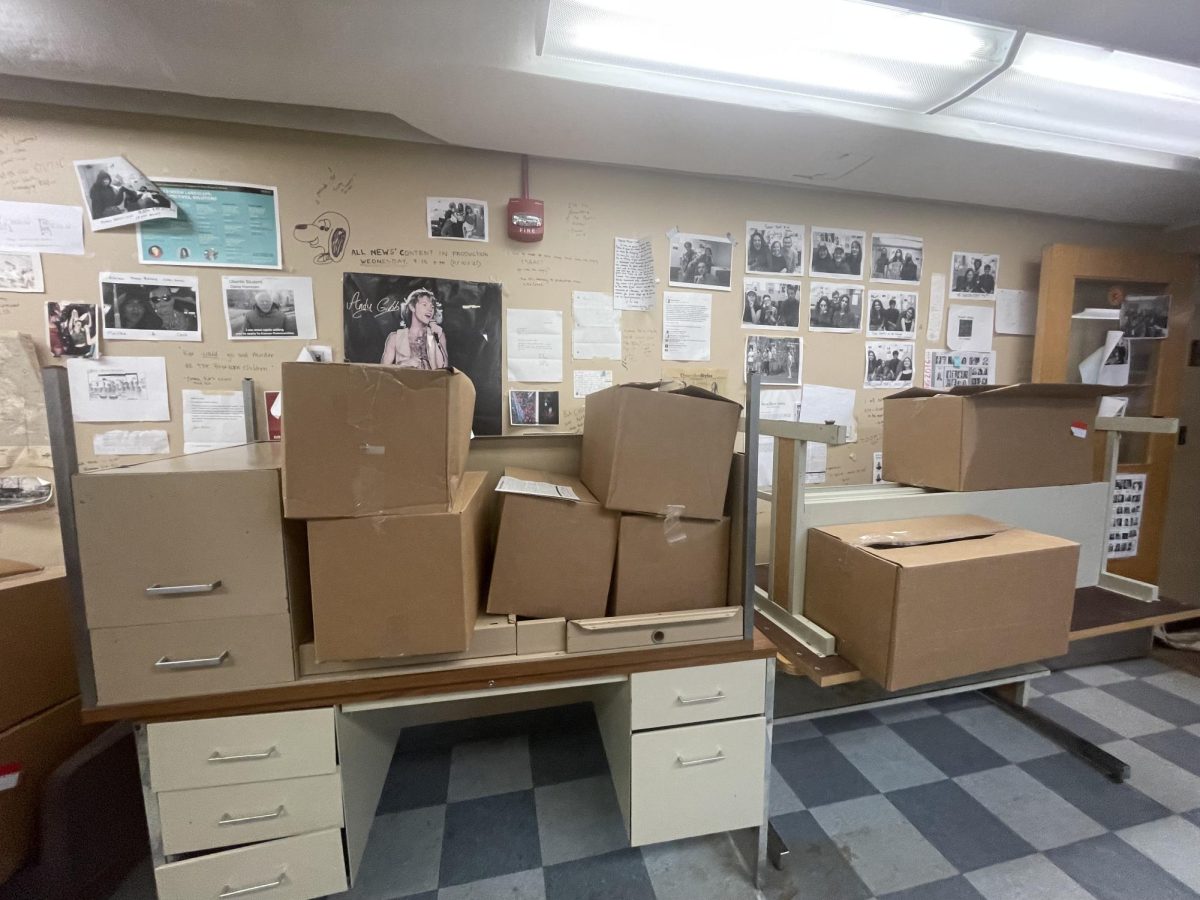Over the summer, Oberlin continued its Sustainable Infrastructure Project, which focuses on converting buildings to the district hot water system and installing electric heat pumps and geothermal wells. Many buildings underwent construction, and the items and furniture within were relocated. Burton Hall, where the office of The Oberlin Review is located, was one of these buildings affected. Computers, furniture, and other office supplies were moved out during the construction process. While the staff recognizes the need to rearrange the space to efficiently conduct renovations, we were not informed of this change ahead of time. The majority of Review staff learned of this move upon returning to an office filled with boxes, none of which contained our computers or printers.
The Review team worked with Facilities Operations to locate the missing items only a couple of days before we officially started work in the office. While we are grateful for the help we received from Facilities and other departments to return the office items, the lack of communication our team received about the initial removal of our items speaks to a larger issue with the way the administration has interacted with student clubs during this period of ongoing construction.
Many of us on campus last semester remember the displacement of student organizations caused by renovations to Wilder Hall. During this displacement, clubs found their office inventory missing or moved to different rooms without any sort of warning, and some items were even lost or discarded. This loss significantly disrupted the regular functioning of many clubs — for instance, WOBC-FM was unable to go on air for an entire semester because of their last-minute relocation. While replacing pipes in Burton that broke over Winter Term 2023, Facilities moved items out of the Review’s archives. After communicating with different administration members about their whereabouts, we have only recently received all our items back. Such relocation of items due to construction places unnecessary strain on student organizations.
We are grateful that Facilities collaborated with us in returning our items, and we understand that the displacement was prompted by essential construction. At the same time, we acknowledge that Review staff is connected with various departments across campus in a way that many organizations are not. Two Review staff members conducting research at Oberlin over the summer were able to alert Facilities and the rest of the staff to the missing items, and begin the process of tracking down our inventory months before most student organizations were aware. The initial discovery was circumstantial, and the following process of retrieval may have posed a greater challenge to student organizations that don’t work as closely with administration and therefore may not be aware of the right avenues for their complaints. Oberlin will only experience more construction and relocation as SIP advances and other projects break ground. These projects will likely result in more displacement of office items. The SIP — which is expected to conclude in 2025 — follows a particularly tight schedule, leaving little room for lengthy conversation between students and administration. It is because of this that we urge Facilities and administration to plan proactively for next summer. Students need to feel secure in the whereabouts of their items and should be notified by Facilities in order to prepare for disruption or preemptively move their belongings. When the Review closed production down at the end of last year, the office was left disorganized under the assumption that once we returned to campus, we would be the ones cleaning it. If warned about the summer construction, we as staff could have better packed, prepared, and stored items in a way that would have made the process of unpacking smoother. This, in turn, would have lessened the burden on the construction team.
Better communication about the construction would have also helped us significantly as we started our next production cycle. As it was, we had less than a week to set up our office from scratch — moving furniture, finding documents, and setting up the computers and printer — which, to most of our staff’s recollection, had not been unplugged for at least 10 years. While we understand that it is not Facilities or the construction team’s job to reorganize our office, if we had received better communication about the whereabouts of our belongings at the start of the semester, we could have been better prepared to handle the transition. This is especially important because our staff had to work unpaid hours of physical labor to unpack.
It is also important to note the need for a system to keep track of the items that are moved. When our printers and computers were returned to us, we received electronic devices from The Grape, whose office also resides in Burton. Again, we are thankful for the safe return of our electronics, but if we had not been in communication with The Grape about our items, there was no guarantee that we would have flagged them as theirs and not ours. If there existed a system to record the whereabouts of items and which organization they belong to, students would be better equipped to identify what items were missing.
The Review staff want to extend our gratitude to all who helped us find our items. We take the time to recount our experience in order to identify an issue in communication that needs to be addressed, in hopes of making the process of renovation easier for all parties involved. The reality is that an email in early May could have allowed us to avoid much unnecessary stress and labor. Construction in Oberlin means we are moving towards a new, cleaner campus. Our student organizations want to be able to support this positive change without losing their autonomy or functionality.


